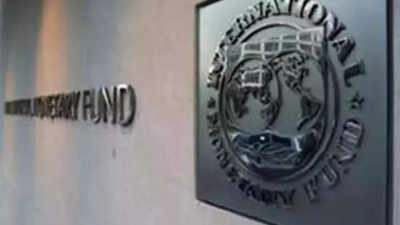
ISLAMABAD: The International Monetary Fund has called on Pakistan to quickly end preferential treatment, tax breaks and other protections for the agriculture and textile sectors, which it says have stifled the country’s growth potential for decades, a media report said on Monday . The International Monetary Fund (IMF), in its staff report diagnosing the factors behind Pakistan’s struggling economy, blamed these two sectors for not only not contributing adequately to the national income but also consuming large portions of the funds public, while remaining ineffective. and uncompetitive, said The Dawn newspaper.
As part of the recently approved USD 7 billion Extended Fund Facility (EFF), the IMF has stressed that Pakistan needs to move away from its economic practices of the past 75 years to escape its recurring cycles of boom and bust.
The IMF report released on October 10 highlighted the country’s significant lag behind similar nations, a stagnation that has compromised living standards and pushed more than 40.5 percent of the population below the poverty line.
Pakistan is said to have struggled to develop more sophisticated export goods, and the share of knowledge-intensive exports remains low because it has failed to innovate. As of 2022, Pakistan ranked 85th in the Economic Complexity Index, the same rank it held in 2000.
“With an export basket heavily oriented towards agriculture and textiles (cotton yarn, rice, fabrics, beef and leather clothing), the country has struggled to reallocate resources to more technologically complex products,” it said. communicated.
The current focus on agriculture has limited Pakistan’s ability to diversify into more technologically complex goods. While Pakistan exports some high-value products such as medicines, medical instruments and plastic products, these sectors operate in a highly distorted economic environment, it said.
The report highlighted tariffs on intermediate and final goods as barriers to competitiveness and domestic market growth, inhibiting the country’s transition to more advanced manufacturing.
“Reallocation, however, is hampered by existing microeconomic distortions, including public procurement of agricultural goods, commodity price controls, and fiscal and financial incentives for low-productivity sectors,” it said.
The report identified the textile sector as having the largest fiscal gap relative to value added, noting that between 2007 and 2022, the sector benefited from subsidies, favorable input prices, concessional financing schemes and preferential tax treatment.
Earlier on September 26, the IMF finally gave its nod to the assistance package and also released over $1 billion as the first tranche after Pakistan pledged to comply with certain conditions. This $1 billion tranche was subject to an agreement to receive $7 billion over 39 months.
The latest IMF report pointed out that as of May 2024, 70% of outstanding central bank concessional loans were related to the textile sector.
The IMF recommended that the government focus on simplifying trade policies in the upcoming National Tariff Policy (2025-29) and urged Pakistan to avoid using tariffs to promote industrialization or protect inefficient sectors, arguing that such policies weaken exports, prevent participation in global value chains. , and stimulate rent-seeking.
The report also warned that “trade policies aimed at promoting specific domestic sectors, including export subsidies and local content requirements, should be discontinued as they are likely to promote misallocation of resources and may violate international obligations.” .
Compared to other partners in the region, Pakistan’s export growth has been weak, with sales to the world stagnating especially in the 2010s.
It said several complex goods are in likely technological proximity to Pakistan’s current export basket, including glassware, paints, chemicals, industrial fabrics, paper, cosmetics and rubber products.
However, to facilitate the development of such new industries, the country needed a level playing field for business, avoiding targeted policies aimed at picking winners.
This includes better integration into global trade and easier access to imports, both as intermediate inputs for production and as final goods to promote domestic competition, the IMF said, adding that removing tax incentives would reduce the existing misallocation of resources and would promote price discovery. between companies.
#IMF #asks #Pakistan #preferential #treatment #agriculture #textile #sectors #Times #India